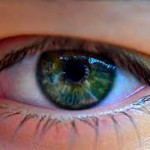According to HealthDay News and an FDA News Release, federal regulators are warning five U.S. eye care providers to stop misleading advertising about the special lasers used in vision correction procedures such as LASIK, the U.S. Food and Drug Administration has announced.
Those ads and promotional materials do not offer consumers enough information about the potential risks, according to the FDA.
“Advertising by many eye care professionals who perform laser vision correction surgery provides patients with the risk information that they need to make informed decisions,” Steve Silverman, compliance director at FDA’s Center for Devices and Radiological Health, said in an agency news release. “But providers whose advertising does not provide adequate risk information are finding out today that the FDA is serious about consumer protection.”
Vision correction surgery with refractive lasers is intended to reduce a person’s dependency on glasses or contact lenses. In refractive surgery, precise and controlled removal of corneal tissue by a special laser permanently reshapes the cornea (a part of the eye that helps focus light to create an image on the retina) and changes its focusing power. LASIK, which stands for Laser-Assisted In Situ Keratomileusis, is one type of vision correction surgery that uses refractive lasers to correct nearsightedness, farsightedness, and astigmatism.
The most common risks of LASIK surgery include: dry eye syndrome, which can be severe; the possible need for glasses or contact lenses after surgery; vision problems such as halos, glare, starbursts; double vision; and loss of vision.
The FDA said the warnings were sent to the following five providers:
- 20/20 Institute Indianapolis LASIK, in Indianapolis
- Scott Hyver Visioncare Inc., in Daly City, California
- Rand Eye Institute, in Deerfield Beach, Florida
- Eye Center of Texas, in Bellaire
- Woolfson Eye Institute, in Atlanta
If the providers do not correct their advertising and promotional materials to address the FDA’s concerns, the agency may take further action, including seizures, injunctions and fines, the agency said in its news release.
The FDA previously issued letters in May 2009 and September 2011 to eye care professionals nationwide explaining the agency’s concerns about improper advertising and promotion of FDA-approved lasers. The FDA also issued letters in March 2012 to the American Society of Cataract and Refractive Surgery and the American Academy of Ophthalmology, providing additional information about disclosing risk information in eye care professionals’ advertisements and promotional materials concerning FDA-approved lasers intended for LASIK.
The FDA website includes information on the risks and benefits of LASIK, and provides access to the labeling for FDA-approved lasers used in LASIK. The FDA encourages consumers considering LASIK to understand what might make them poor candidates for the procedure, the risks and limitations of the procedure and the particular laser that would be used to perform the procedure. The FDA also recommends that consumers consult an experienced eye care professional to know what to expect before, during, and after LASIK surgery.

